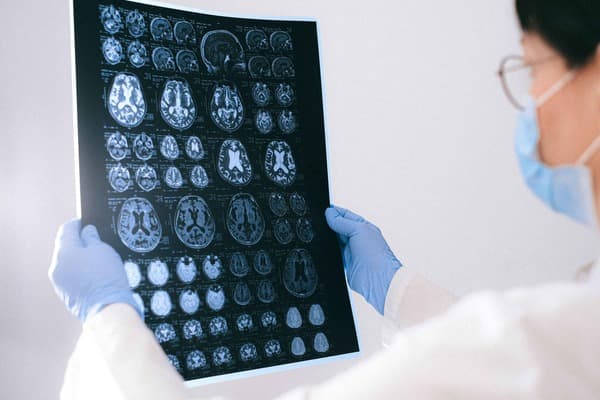July 15, 2023
The Latest Tinnitus Researches
Article Navigation: Quick Access to Sections
Tinnitus, characterized by a persistent ringing or buzzing in the ears, significantly affects millions of people worldwide. While it can be a challenging condition to live with, continuous strides in research are unveiling new details about the complexity of tinnitus, offering hope for more effective treatments and management techniques. This article explores some of the most exciting recent advancements in tinnitus research.

Introduction: Understanding the Complexity of Tinnitus
Tinnitus is not just an ear problem—it’s a neurological and auditory condition that affects how the brain processes sound.
How Tinnitus Develops
- Hearing Loss and Inner Ear Damage – Loss of hair cells in the cochlea disrupts the auditory signal.
- Hyperactivity in the Brain’s Auditory Centers – The brain overcompensates for lost input, generating phantom sounds.
- Psychological and Emotional Impact – Anxiety and stress can heighten tinnitus perception.
Understanding tinnitus requires a multidisciplinary approach, involving neuroscience, audiology, and psychology. The latest research focuses on uncovering the root mechanisms and developing targeted treatments to help individuals manage or even cure tinnitus.
New Insights into Tinnitus
Recent studies have reshaped our understanding of how tinnitus manifests in the brain. It’s now widely accepted that tinnitus is more than just an issue with the ears—it’s a problem with the brain’s auditory processing centers.
"It's like the brain's 'volume control' gets stuck on high," explains one researcher. "This leads to an over-amplification of sound signals, which is perceived as a constant ringing or buzzing."
1. The Brain’s Role in Tinnitus
- Neural Hyperactivity – Research shows that tinnitus is associated with increased activity in the auditory cortex.
- Maladaptive Plasticity – When the brain loses normal auditory input, it tries to compensate by generating its own sounds.
- Connectivity Between Brain Regions – Some studies suggest that tinnitus is linked to dysfunction in attention and emotional processing centers.
These insights challenge traditional treatment approaches, leading to new therapeutic strategies that focus on brain retraining rather than just masking tinnitus sounds.
Unraveling the Complexity of Tinnitus
Tinnitus research has become multidisciplinary, involving:
- Neuroscientists studying brain plasticity.
- Audiologists working on new hearing technologies.
- Psychologists addressing cognitive and emotional impacts.
1. Attention and Tinnitus: A New Connection?
Recent studies suggest that tinnitus sufferers have a heightened focus on their symptoms, making them more aware of the ringing.
- Cognitive overload can make tinnitus worse – The more a person focuses on their tinnitus, the louder it seems.
- Mindfulness and cognitive therapy can help retrain the brain to reduce awareness of tinnitus.
By addressing how the brain prioritizes tinnitus sounds, new therapies are being developed to shift attention away from the ringing.
Potential New Treatments
1. Drug Therapy for Tinnitus Relief
Although no FDA-approved tinnitus drug currently exists, several promising compounds are being tested:
- NMDA receptor antagonists – These drugs target excessive brain activity in the auditory cortex.
- GABA-enhancing medications – Help reduce hyperactivity in the brain's sound-processing areas.
- Anti-inflammatory drugs – Since neuroinflammation may play a role in tinnitus, some drugs are being tested to reduce this.
"By targeting the brain's 'volume control', we may be able to reduce the intensity of the tinnitus sound, providing much-needed relief for sufferers," says one scientist.
2. Neuromodulation Therapies
New research is exploring non-invasive brain stimulation techniques to help reset auditory processing.
- Transcranial Magnetic Stimulation (TMS) – Uses magnetic fields to target overactive brain regions.
- Vagus Nerve Stimulation (VNS) – Stimulating the vagus nerve may help the brain reorganize its sound processing.
- Deep Brain Stimulation (DBS) – A more invasive technique showing promise in treating severe tinnitus cases.
These innovative treatments aim to reduce the brain’s overactive response to missing auditory signals.
Innovative Technologies for Managing Tinnitus
Technology is transforming tinnitus management, offering personalized solutions for those struggling with persistent symptoms.
1. Smart Hearing Aids with Tinnitus Therapy
Modern hearing aids now feature:
- Tinnitus masking sounds – Playing white noise or nature sounds to counteract ringing.
- AI-powered sound customization – Adapting to each individual’s tinnitus pattern.
- Neurofeedback integration – Training the brain to reprogram auditory processing.
2. Tinnitus Treatment Apps
Numerous mobile apps now offer:
- Customizable sound therapy – White noise, pink noise, and natural sounds.
- Cognitive Behavioral Therapy (CBT) modules – Helping users manage tinnitus-related anxiety.
- Progress tracking tools – Monitoring tinnitus severity over time.
3. Wearable Devices for Tinnitus Relief
- Bone conduction headphones – Deliver sound therapy without blocking external noise.
- Brainwave headbands – Using biofeedback to reduce stress-induced tinnitus.
- Tinnitus sleep masks – Combining light therapy and sound therapy for improved sleep.

Looking Ahead: The Future of Tinnitus Treatment
The future of tinnitus treatment looks promising, with several exciting advancements on the horizon.
1. Gene Therapy and Regenerative Medicine
- Hair Cell Regeneration – Scientists are exploring ways to regrow damaged cochlear cells to restore natural hearing.
- Genetic Modifications – Identifying tinnitus-related genes could lead to targeted treatments.
2. Artificial Intelligence and Machine Learning
- AI is helping researchers analyze tinnitus patterns to develop personalized therapies.
- Machine learning is being used to detect early tinnitus symptoms, potentially preventing long-term issues.
3. Brain-Computer Interfaces (BCI)
- Neural implants could help bypass damaged auditory pathways, providing direct stimulation to the brain’s hearing centers.
These advancements represent the next frontier in tinnitus research and treatment, offering hope for millions of sufferers.
Conclusion: A Future Without Tinnitus?
While tinnitus remains a complex and persistent condition, research advancements in neuroscience, medicine, and technology are bringing us closer to a cure.
As researchers continue to push the boundaries of tinnitus science, the future looks brighter than ever for those affected by this condition.